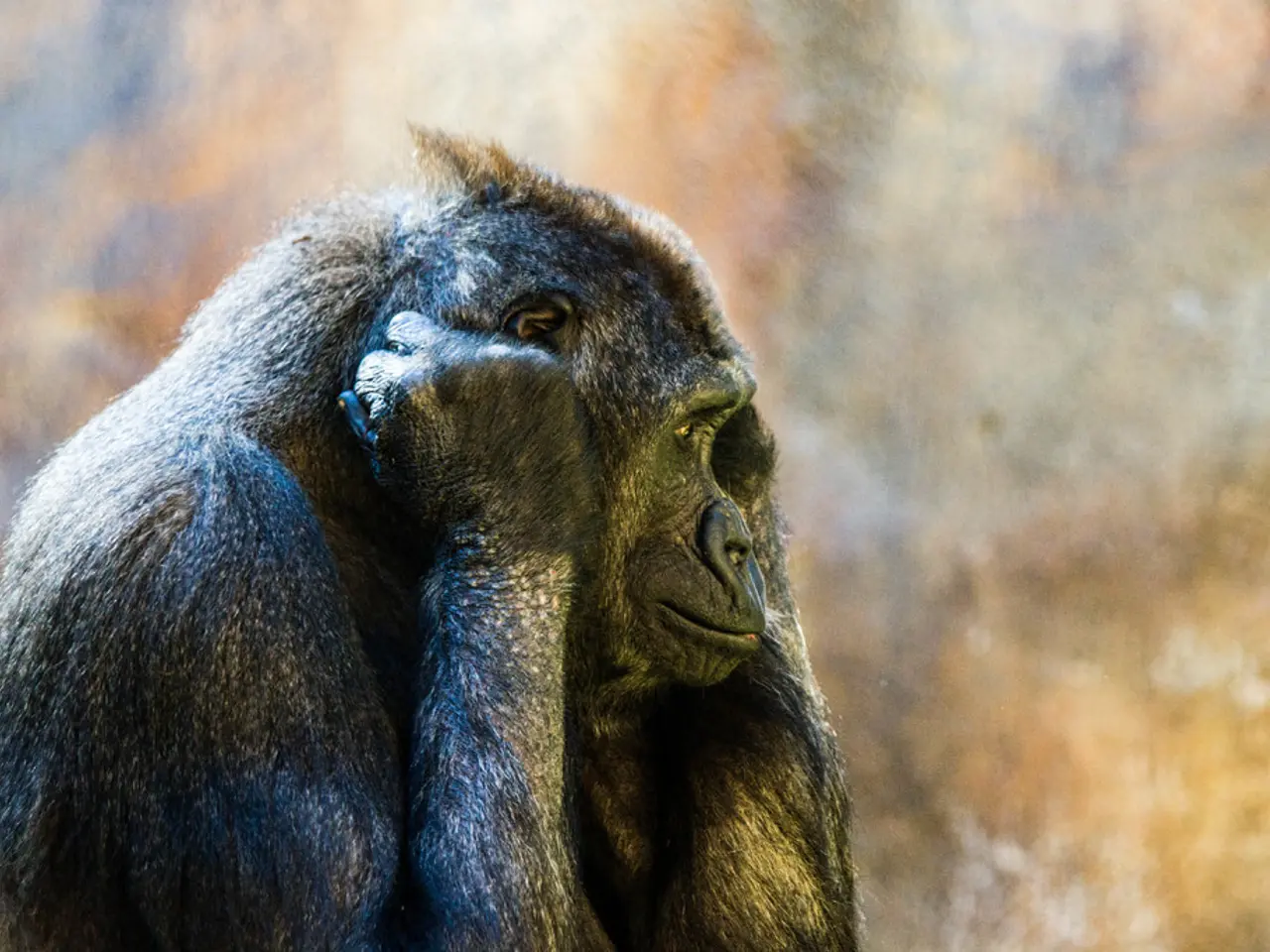Power Structures, Religion, and Democratic Systems: Comparing Ape Societies, Humans, and Democracies
In the early days of civilization, rulers were often portrayed as divinely appointed or semi-divine, a reflection of the centralized authority that governed human societies. This centralized authority arose through various mechanisms, including control over violence, bureaucracy and information management, charismatic leadership, and social rituals that fostered cooperation and hierarchy [1].
Centralized political systems often emerged by monopolizing the legitimate use of force, establishing sovereignty that enforces social order [1]. The rise of writing, record keeping, and administrative structures enabled rulers to manage resources and populations effectively, reinforcing hierarchy [1]. Political leaders gained influence through personal charisma, religious or symbolic authority, which helped stabilize emerging centralized institutions [1]. Communal rituals involving alcohol and feasting bolstered social bonds and obligations, which helped sustain hierarchical societies [4].
From an evolutionary perspective, societies with strong norms (tight societies) tend to exhibit higher conformity and responsiveness to authority, facilitating centralized governance structures [2].
However, the relationship between centralized authority and democracy is complex. Some Indigenous societies, such as the Wendat, historically rejected centralized hierarchies and embraced political values resembling early democratic or flexible governance, which Europeans later encountered [1]. The modern emergence of hierarchical states is argued to owe much to colonial imposition and normalized violence rather than a straightforward evolutionary progression [1]. This history suggests democracy can be seen as an alternative political creativity that counters rigid centralized domination.
In the world of our closest living relatives, chimpanzees, dominance hierarchies are also present. Adolescent males in chimpanzee groups generally defer open dominance contests until reaching maturity [6]. Alpha males assert leadership through aggression, coalition-building, and ritualized signals of submission [6].
Understanding the interplay of biology, culture, religion, economy, and politics shaping social order can help societies navigate the path toward governance systems that genuinely reflect collective will and protect individual autonomy. The future of governance depends on nurturing emancipative cultures, institutional reforms, and vigilant civic participation to ensure democracy effectively balances power and freedom.
Political reforms that enhance transparency, prevent elite capture, and provide mechanisms for meaningful citizen participation beyond just voting are crucial for democracy [7]. Robust civil liberties and rule of law are essential to constrain abuses of power and enable peaceful dissent in democratic societies [7]. Modern democracy requires the cultivation of emancipative values, such as individual freedom, equality, and critical engagement. A culture of pluralism and inclusion is necessary to ensure diverse voices influence policymaking and prevent concentration of power.
References:
[1] Tilly, C. (2007). Coercion, Capital, and European States, A.D. 990-1992. Cambridge, MA: Blackwell Publishers. [2] Henrich, J., Boyd, R., Bowles, S., Camerer, C., Fehr, E., Gintis, H., ... & McElreath, R. (2004). Foundations of human sociality: economic experiments and ethnographic evidence from fifteen small-scale societies. Behavioral and Brain Sciences, 27(5), 795-855. [3] Spencer, H. (1891). The Man versus the State. London: Williams & Norgate. [4] Sahlins, M. (1972). Stone Age Economics. New York: Aldine Transaction. [5] Giddens, A. (1981). New Rules of Sociological Method: A Positive Critique of Interpretive Sociologies. Cambridge: Polity Press. [6] Whiten, A., Boesch, C., & Tomasello, M. (1999). Machiavellian Intelligence: Social Expertise and the Evolution of the Cognitive Niche. Oxford: Clarendon Press. [7] Diamond, J. (1994). Guns, Germs, and Steel: The Fates of Human Societies. New York: W.W. Norton & Company.
- The evolution of centralized authority in human societies can be traced back to mechanisms like control over violence, implementation of bureaucracy, management of information, charismatic leadership, and social rituals.
- From an evolutionary standpoint, societies with strong norms tend to exhibit higher conformity and responsiveness to authority, facilitating the emergence of centralized governance structures.
- In the realm of environmental science, understanding the biological, cultural, religious, economic, and political factors shaping social order is crucial for navigating the path toward governance systems that protect both collective will and individual autonomy.
- In the realm of education and self-development, modern democracy requires the cultivation of emancipative values such as individual freedom, equality, and critical engagement.
- In the environment of our closest relatives, chimpanzees, dominance hierarchies are also present, with alpha males asserting leadership through aggression, coalition-building, and ritualized signals of submission.
- To ensure the sustainability of democratic societies, political reforms are necessary to enhance transparency, prevent elite capture, and provide mechanisms for meaningful citizen participation beyond just voting, and the cultivation of a culture of pluralism and inclusion is essential to prevent concentration of power.




